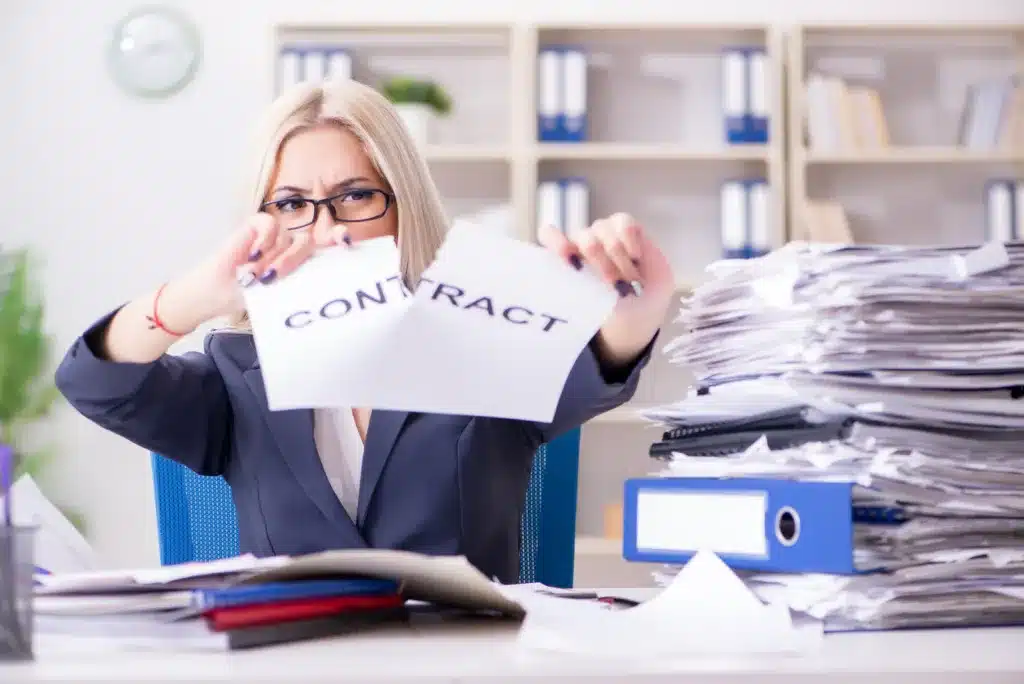In the digital era, it’s common for businesses to send invoices via email or text message. However, you might wonder if there are restrictions on when these communications can be sent, especially late at night.
In Florida, the Florida Consumer Collection Practices Act (FCCPA) outlines specific regulations regarding debt collection practices, including the timing of communications. This article explores whether receiving invoices via email or text message after 9 p.m. in Florida is illegal and what your rights are as a consumer.
Understanding the Florida Consumer Collection Practices Act (FCCPA)
The FCCPA protects consumers from abusive, unfair, or deceptive collection practices. Section 559.72(17) specifically addresses the timing of communications related to debt collection.
Under Section 559.72(17), a debt collector is prohibited from communicating with a debtor in any form, including via email or text message, between 9 p.m. and 8 a.m. This regulation protects consumers from receiving intrusive and inconvenient communications during late-night and early-morning hours.
What Does This Law Mean for Invoices?
While the FCCPA primarily targets debt collection practices, it is crucial to understand whether invoices fall under this regulation. Typically, invoices are not considered debt collection communications unless they are sent by a debt collector attempting to collect a past-due payment.
Why Should You Seek Legal Assistance for Late-Night Invoice Communications
Regardless of whether you are receiving regular invoices or debt collection notices, both types of communications sent after 9 p.m. or before 8 a.m. is illegal and can be grounds for legal action under the laws of the FCCPA.
Handling these late-night communications on your own can be complex and overwhelming. If you receive any type of invoice outside the permitted hours, it’s important to seek legal assistance.
Contact RTRLAW’s experienced commercial litigation attorneys to help you navigate these regulations, protect your rights, and take appropriate action against businesses that violate the FCCPA. Don’t handle these issues alone; let us assist you in ensuring your consumer rights are upheld.
What are My Rights as a Consumer?
Understanding your rights under the FCCPA can help you manage unwanted late-night communications. If you believe an invoice sent after 9pm is part of a debt collection effort, you have several options:
- Document the Communication: Keep a record of the date and time of the communication and the message’s content.
- File a Complaint: You can file a complaint with the Florida Department of Agriculture and Consumer Services (FDACS) if you believe your rights under the FCCPA have been violated.
- Seek Legal Advice: Contact an attorney specializing in consumer rights to discuss your situation and determine the best course of action.
By understanding and exercising your rights under the FCCPA, you can protect yourself from intrusive and unlawful late-night communications. If you receive invoices after 9 p.m. that seem part of a debt collection effort, take the necessary steps to document the issue, file a complaint, and seek legal advice if needed. RTRLAW is here to assist you with debt-related legal concerns and ensure your consumer rights are upheld.
How Can RTRLAW Help Me with This Issue?
Consulting an attorney can be beneficial if you are experiencing issues with receiving debt collection communications, such as invoices, after 9 p.m. in violation of the FCCPA. Here’s how an attorney can assist you:
- Legal Advice and Guidance: An attorney specializing in consumer rights can provide detailed legal advice on your situation, helping you understand your rights under the FCCPA.
- Documenting Violations: An attorney can assist you in documenting any violations, ensuring you have a strong case if you need to take legal action.
- Filing Complaints: Your attorney can help you file complaints with the Florida Department of Agriculture and Consumer Services (FDACS) and other relevant authorities.
- Negotiation and Representation: If necessary, an attorney can negotiate on your behalf with the debt collector or business to resolve the issue. Your attorney can also represent you in court if the case proceeds to litigation.
RTRLAW’s consumer rights attorneys work on a contingency fee basis. This means you do not have to pay any upfront fees. Instead, the attorney’s fees are only collected if you win your case or reach a settlement. This arrangement ensures that legal assistance is accessible to all consumers, regardless of their financial situation.
If you have issues with late-night debt collection communications, you have the right to act. For any legal concerns or questions about your rights under the FCCPA, RTRLAW is here to provide expert guidance and support to help you navigate these regulations and ensure your rights are protected.


 CALL US NOW
CALL US NOW TEXT US NOW
TEXT US NOW























